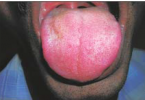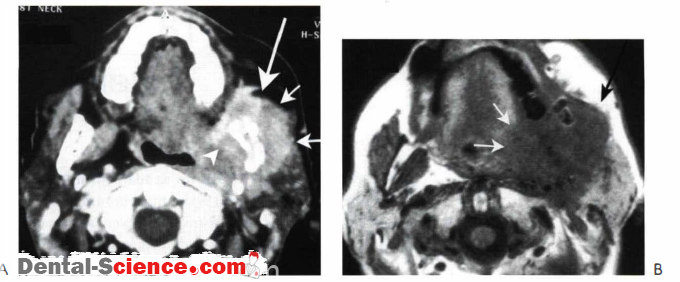A metallic taste in mouth is a common condition, may be due to general health problems such as: Diabetes, liver disease, Kidney disease, Central Nervous System (CNS) disorders and rarely certain cancer.
If you’re medically free (healthy person), the metallic taste can be caused by several conditions.

What causes metallic taste in my mouth?
1. Medications & Drugs
Certain drugs and medications may lead to metallic taste, these drugs include:
-Antibiotics: tetracycline, Metronidazole (Flagyl) and clarithromycin (Biaxin)
-antidepressants medications.
-osteoporosis medications.
-blood pressure and glaucoma medications.
-Vitamins medications that contain heavy metals.
2. Poor Oral Hygiene
Brushing and flossing are important to prevent gingivitis and periodontitis, if you don’t brush and floss this may result in infection. This infection can cause metallic taste in your mouth.
3. Chemotherapy and Radiation
Treatment of cancer with chemotherapy and radiation can cause a side effect called “Chemo Mouth”, which result in bad taste.
4. Pregnancy
– Is a metallic taste an early sign of pregnancy?
The hormonal changes occur during pregnancy can cause taste changes especially in first trimester (early stages). One of those changes is metallic taste.
5. Middle Ear Surgery
Chorda Tympani (a nerve responsible for taste sensation in rear two-thirds of tongue and located near inner ear) may be damaged during middle ear surgery.
6. Drinking Water
Drinking insufficient amount of water can contribute to metallic taste in mouth.
7. Metal Poisoning
Exposure or inhaling high amount of chemicals as lead and mercury may lead to metallic taste.
8. Dementia and Head Injury
Patients with Dementia usually experience taste abnormalities.
9. Sinusitis and Respiratory Infections
Sinusitis can alter your taste buds as there is relation between your sense of taste and your sense of smell.
When Should I See a Doctor for Metallic Taste?
Usually the metallic taste in your mouth subside once the underlying cause has been treated. But if the metallic taste persist it’s best to consult with your doctor especially if you’re medically free and out of all causes mentioned before.






